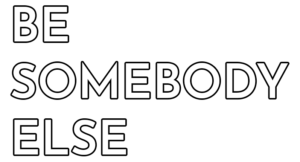by Tom Tomaszewski | Nov 22, 2023 | MONOTONY

MONOTONY / SEEKING
How can you go searching? Caution is not uncertainty. Enthusiasm is not over-confidence. Being yourself in your life involves working out these kinds of differences, Whether or not you like books and regardless of whether you like Charles Dickens his books are one of the greatest sources of awareness I can think of. When it comes to understanding how to go about living. Dickens doesn’t simply write about things, he writes them, from the heart, from the middle of things, not as if he was an unconcerned onlooker, and usually with the welfare of children in mind. If you really want to give that child in you who could never feel secure a sense of something solid to believe in try Dickens. He knew how to go looking. He cared about children.
by Tom Tomaszewski | Nov 5, 2023 | HESITATION

HESITATION / PANIC
Anxiety is always related to a sense of constriction imposed by others.
Thought about like this there are many things you can look to adjust, including how able you might be to say yes or no to what others suggest, the kind of people you hang around with, how able you feel to hang around with who you like, and what you do with your spare time. Remember, you need to think of a ‘sense’ of constriction: your sense. It may be inaccurate.
by Tom Tomaszewski | Nov 4, 2023 | FRUSTRATION

FRUSTRATION / CARE
The word ‘esteem’ comes to us from an old word meaning ‘estimate’. Many problems to do with FRUSTRATION involve something to do with a sense of estimation fostered in childhood that mediates our sense of self-esteem.
Do you come from a family that under- or overestimated things? Did you have too little or too much to eat? Did the world feel too unsafe, or too safe? If you cast your mind across these kinds of questions you may see a correlation: too safe, too much to eat, and too comfortable (a world of fluffy cushions and horrendous sentimentality) might correspond to a certain kind of self-centredness or self-importance. I say ‘a certain kind’ because there are many! A tendency to underestimate other people’s things can follow from this: their problems, their generosity, their kindness … those kinds of thing.
If you believe you look after yourself well here’s a simple way to test that sense of estimation. Focus on one of your meals. Prepare it in exactly the way you might normally do and then check with a nutritionist whether the portion size and amounts of various food groups you have prepared are in line with what you had imagined were necessary.
Your sense of time is also something you can assess. Estimate a journey time and see how accurate that is. Do you tend to arrive too late or too early? You may have an estimation problem.
Similarly, how accurately do you report what you think was said in a conversation? Record some (don’t forget to ask anyone else involved first). Tell someone else what was said in the conversation and then play back the recording. Were you accurate? Did you add stuff or edit out stuff? They ways in which you might distort an experience when you report it to someone else is often related to your sense of estimation – your self-esteem.
Learn to measure things so that what you see, feel or experience is held together with a reliable gauge (a clock, some scales, a dictionary,.
by Tom Tomaszewski | Nov 4, 2023 | HESITATION
 I’m not a big believer in what get called attachment styles. It’s like buying clothes from a mass-market store, on-line, without trying them on first, and without any real sense of what S, M, L, XL, or XXL might relate to. However, thinking about attachment through the lens of Panksepp’s PANIC system allows for a little more imagination. It’s more like trying something on and then being able to make adjustments before you take your clothes home.
I’m not a big believer in what get called attachment styles. It’s like buying clothes from a mass-market store, on-line, without trying them on first, and without any real sense of what S, M, L, XL, or XXL might relate to. However, thinking about attachment through the lens of Panksepp’s PANIC system allows for a little more imagination. It’s more like trying something on and then being able to make adjustments before you take your clothes home.
Thinking about PANIC and the ways in which we might find life plagued by HESITATION (or maybe you can think of your own label based on your experience?) allows you to examine the effects of mediation. The pull towards addressing PANIC can leave you and the people around you (all with their own sense of PANIC to try and deal with. Attachment understood like this has to be seen as a ‘group’ phenomenon; a process of interdependence that Nicolas Abraham and Maria Torok called the ‘Dynamics of Intersubjective Functioning)’ experiencing life with different degrees of mutual mediation.

Mediation Styles
Above are some drawings of the kind I do for my clients in sessions. The four I have shown are among the ones I most commonly find myself drawing.
In number one there’s a sense of the carer being comfortably ‘in the world’ and able to pass this sense of realism and lack of anxiety across to their child. The child receives the world mediated by someone who has a good idea of how the world operates and who manages to balance feeling getting what they need with what others need, and so on.
Number two shows a carer crushed by the world. Their child receives a sense of the world as alarming, threatening and overwhelming. ‘stick close to me at all times’, might be a message the carer implicitly passes on. Or you will PANIC. Another kind of message might be ‘Head for the hills, everybody for themself’. I come up with messages appropriate to each client. What would your message have been, do you think, and how are you still living it? How can you rewrite the script you were given?
Number three shows a child taking in confusion. Their carer can’t make sense of the world.
Number four shows a child standing between their carer and the world. That’s no fun at all. That child has to stand up to the world like an adult while their carer shelters. Sometimes the carer really needs to get their act together. Sometimes the carer needs help from a doctor or someone like that … and their child needs help from other adults so they can go on being a child while their body, their brain, their mind develop less acutely.
There are dozens of drawings like these to be made. They help show how all of the drives might be adapted to.
by Tom Tomaszewski | Nov 2, 2023 | INEXPERIENCE

INEXPERIENCE / FEAR
Think about one of those optical illusions where you see something … and see something quite different if you look at it again. It’s the same image but you see it differently. Most importantly: it feels very different.

Ask yourself: does your life feel worth it? If the answer veers towards yes then we might assume something happened in your early life where your carers regularly and helpfully mediated whatever life threw at you. If the answer is less certain than perhaps an important sense of protection was never granted you. You learned to live in FEAR.
Living your life in FEAR means somehow remaining hidden, protecting yourself by not being quite ‘there’: presenting a facade, existing in other places (for example in your professional work or in your art. These can be places where you can more safely be yourself because different rules apply compared to the unpredictability of everyday life).
Live your life as if it is absolutely worth protecting. Live it as if you believe this. You need the feeling that comes from such an experience; not, to begin with the experience of believing in the thought of your life being worth protecting
With the feeling that comes from the experience of living your life as if it is worth protecting you can lead a life where you might then feel yourself. Without an experience of this feeling you may never feel yourself.
See life differently to feel it differently.
Life begins properly for you when there is barely an as if. There’s a feeling of you and felt from this place life will seem so different. Possibilities, opportunities, connections and experiments will occur to you that would have remained hidden when you were.







